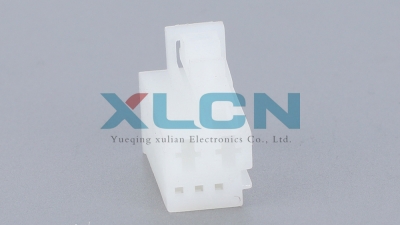7 Essential Tips for Choosing the Right Car Battery Cable Connectors
Table of Contents
- Understanding the Importance of Quality Car Battery Cable Connectors
- Key Features to Look for in Car Battery Cable Connectors
- Comparing Different Types of Car Battery Cable Connectors
- How to Properly Size Car Battery Cable Connectors for Your Vehicle
- Common Mistakes to Avoid When Choosing Car Battery Cable Connectors
- Installing and Maintaining Your Car Battery Cable Connectors for Longevity
- Rev Up Your Ride: Exploring the BEN Z CAR Series for Ultimate Performance and Style
- FAQS
- Conclusion
- Related Posts
When it comes to keeping your vehicle's electrical system reliable and lasting as long as possible, choosing the right car battery cable connectors is a pretty big deal. I recently read a report from the Global Automotive Connector Market, and it looks like demand for top-quality connectors is going to grow a lot, especially as cars get smarter with new tech and electric models becoming more common.
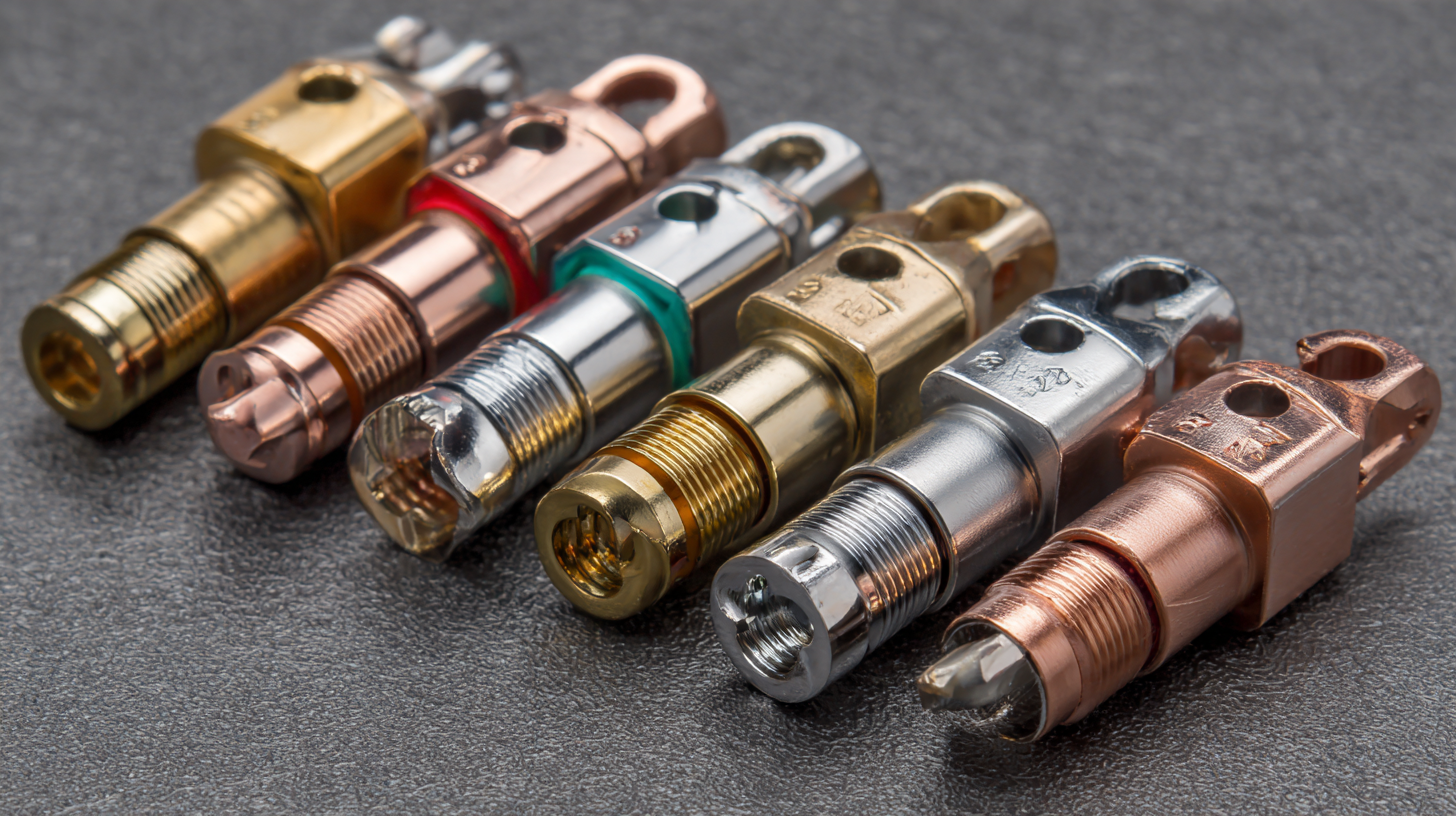
Yueqing Xulian Electronics Co., Ltd. is really leading the charge here, blending production, R&D, and manufacturing to bring out some seriously advanced automotive connectors — including those all-important battery cable connectors. Picking the right parts not only makes your electrical connections run smoother, but it also cuts down on the chances of things failing down the line, helping your vehicle perform at its best.
In this post, I’m going to share seven key tips to help you pick the perfect connectors for your car needs without any hassle.
Understanding the Importance of Quality Car Battery Cable Connectors
When it comes to keeping your car running smoothly and making sure it lasts, don’t overlook the importance of good-quality car battery cable connectors. These little things are actually really important—they make sure your battery is connected properly to the rest of the electrical system. If you go with cheap or crappy connectors, you might experience random power cuts, which can just be a nightmare—your car won’t start or you might lose lights, radio, or other essentials when you need them most.
So, if you're shopping for new connectors, a couple of things to keep in mind. First, think about the wire gauge—thicker wires (which means a lower gauge number) can handle more juice, especially if you’re driving a high-performance or older vehicle. Also, try to pick connectors made from solid, corrosion-resistant materials like copper or lead; they’ll last longer and conduct better. And make sure the fit is snug—nothing worse than connectors that slip off easily, especially when you're on the road.
Oh, and don’t forget about insulation! A good connector should have decent insulation to prevent short circuits and keep things safe. Lastly, double-check that the connectors are compatible with your current battery and cables—better safe than sorry, right? If you pay attention to these little details, your car’s electrical system will stay more reliable and you’ll avoid those pesky electrical issues down the line.
Key Features to Look for in Car Battery Cable Connectors
When you're picking out the right car battery cable connectors, there are a few key features you definitely wanna keep in mind to make sure the connection is solid and works smoothly. First off, think about what they’re made of. Copper connectors are usually the way to go since they conduct electricity really well, but aluminum ones can be a lighter and cheaper alternative if you're on a budget. Just don’t forget—corrosion resistance is super important. Look for connectors that have been treated or coated to resist rust and oxidation because that’ll help them last longer and stay reliable.
Another thing to watch for is the size and whether the connector actually fits your car’s battery terminals. A good, snug fit is crucial to keep things tight and avoid any voltage drops or those weird intermittent connections. Also, check out the quality of the insulation—stuff that can handle high temps and won’t short out easily. Some connectors even come with built-in strain relief features, which is a nice bonus because it helps prevent the cables from wearing out over time. All in all, these little details can make a big difference in how durable and safe your connection is.
Comparing Different Types of Car Battery Cable Connectors
When it comes to picking the right car battery cable connectors, it’s pretty important to get a good grasp of the different types out there and what they’re actually used for. You’ve got options like ring terminals, spade terminals, and clamp connectors, each one serving a specific purpose. Did you know, according to MarketsandMarkets, the automotive electrical connector market is expected to hit around $80 billion by 2025? That just goes to show how crucial reliable connectors are becoming for vehicle performance and safety.
Choosing the right connectors isn’t just about picking something that fits. You wanna think about things like how well they conduct electricity, how tough they are, and how resistant they are to corrosion. For instance, high-quality copper connectors tend to do better in terms of conductivity compared to aluminum ones—so they pass electricity more efficiently. Plus, connectors that are plated with gold or tin hold up better against rust and corrosion, which is key since cars often face tough conditions. Companies like Yueqing Xulian Electronics are leading the charge here, offering a variety of connectors that focus on both durability and efficiency — super important given how complex modern electronics in cars have become.
Honestly, the kind of connector you choose can really affect how your vehicle performs, and it also matters a lot for safety and reliability. With all these advanced electronics and the push towards electric cars, making the right choice is more important than ever. As industry folks often say, investing in high-quality connectors isn’t just about better performance — it actually helps your car’s electrical system last longer and stay in good shape over time.
How to Properly Size Car Battery Cable Connectors for Your Vehicle
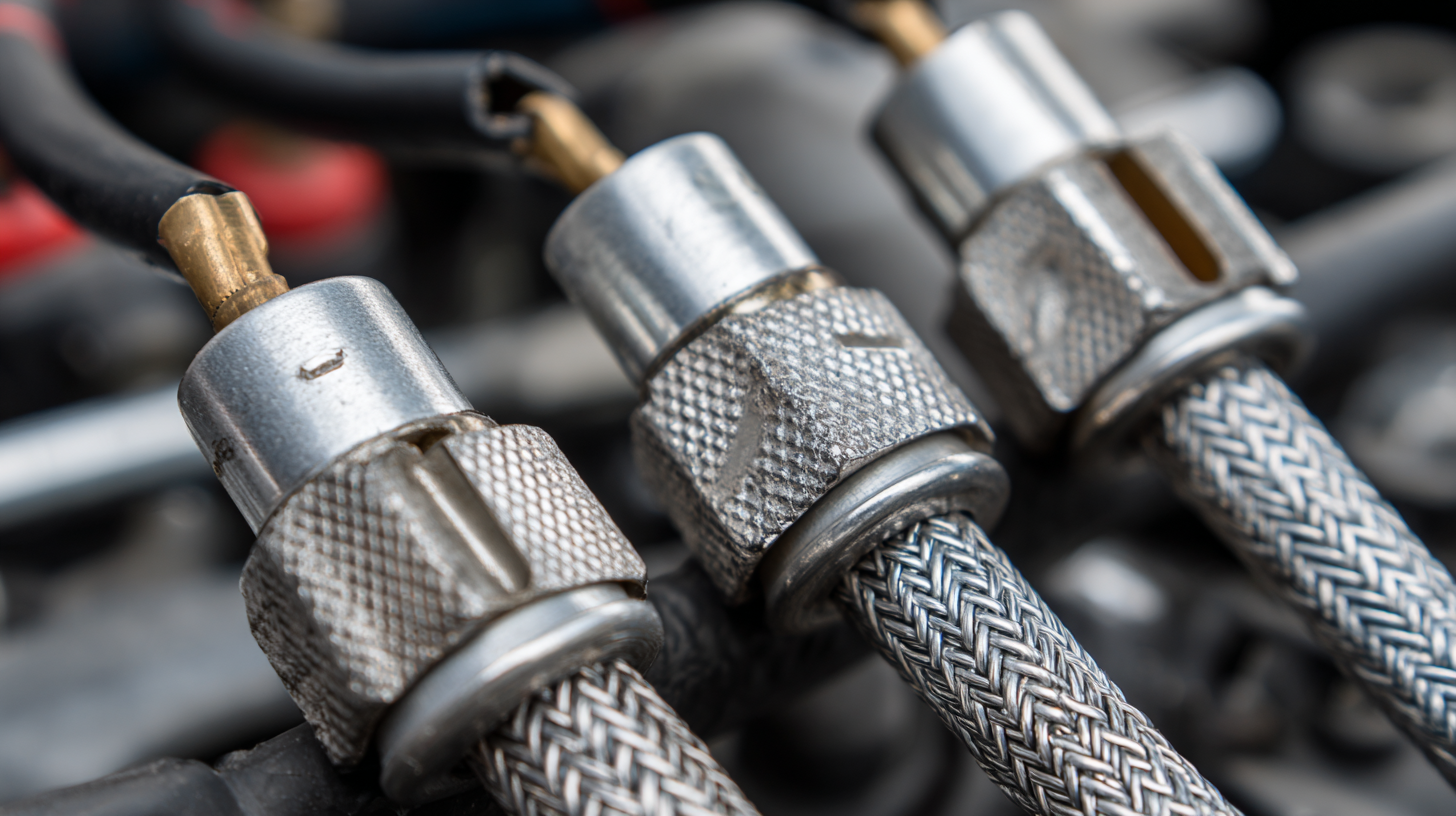 When you're taking care of your car’s electrical system, picking the right size of the battery cable connectors is pretty important. Basically, the size you need depends on the gauge of the cables you're using. Usually, thicker cables call for bigger connectors to make sure everything stays connected securely and runs smoothly. It’s super important to match your connectors to your cable’s gauge—otherwise, you run the risk of overheating and messing with proper power flow. Most cables fall somewhere between 4 and 0 gauge, so it’s a good idea to double-check your cables before buying connectors.
When you're taking care of your car’s electrical system, picking the right size of the battery cable connectors is pretty important. Basically, the size you need depends on the gauge of the cables you're using. Usually, thicker cables call for bigger connectors to make sure everything stays connected securely and runs smoothly. It’s super important to match your connectors to your cable’s gauge—otherwise, you run the risk of overheating and messing with proper power flow. Most cables fall somewhere between 4 and 0 gauge, so it’s a good idea to double-check your cables before buying connectors.
And don’t forget about the material! Copper connectors are top-notch because they conduct electricity really well and last a long time. But if you’re looking for something lighter and more affordable, aluminum is also an option. Just make sure the connectors fit snugly onto your battery posts—this helps prevent corrosion and keeps your connection solid over time. Getting the size right isn't just about immediate performance; it’s also about keeping your vehicle’s electrical system healthy in the long run. So yeah, choosing the right connectors really does matter!
Common Mistakes to Avoid When Choosing Car Battery Cable Connectors
When you're picking out car battery cable connectors, it’s super important to watch out for some common mistakes that could really mess things up or even cause damage. One of the biggest blunders people make is choosing connectors that aren’t compatible with their battery type. For instance, using connectors made for traditional lead-acid batteries on AGM or lithium batteries can lead to poor connections or worse, short circuits. So, always double-check that the connectors match your battery’s specs—that way, you keep everything running smoothly and safely.
Another thing to keep in mind is not to overlook the gauge of your cables. Plenty of folks assume any connector will do without thinking about the size of the wire. But if your connectors are too small for the gauge of your cables, it can cause them to heat up a lot or limit the electrical flow, which definitely won’t do your vehicle any favors. It’s best to measure your cables carefully and pick connectors that fit snugly and ensure a solid, secure connection. Oh, and don’t forget—cheap, low-quality connectors are usually a bad idea. They tend to wear out fast and can cause all sorts of issues down the line when you’re out on the road.
Installing and Maintaining Your Car Battery Cable Connectors for Longevity
When you're installing car battery cable connectors, it's super important to make sure they fit well and stay securely connected. Start off by cleaning the battery terminals and the connectors — a wire brush or a special terminal cleaner works great here to get rid of any grime or corrosion. After everything’s nice and clean, connect the positive cable to the positive terminal, and the negative to the negative — just double-check that everything’s tight, because loose connections can cause electrical issues, which might mess with your car’s performance or even be a safety risk.
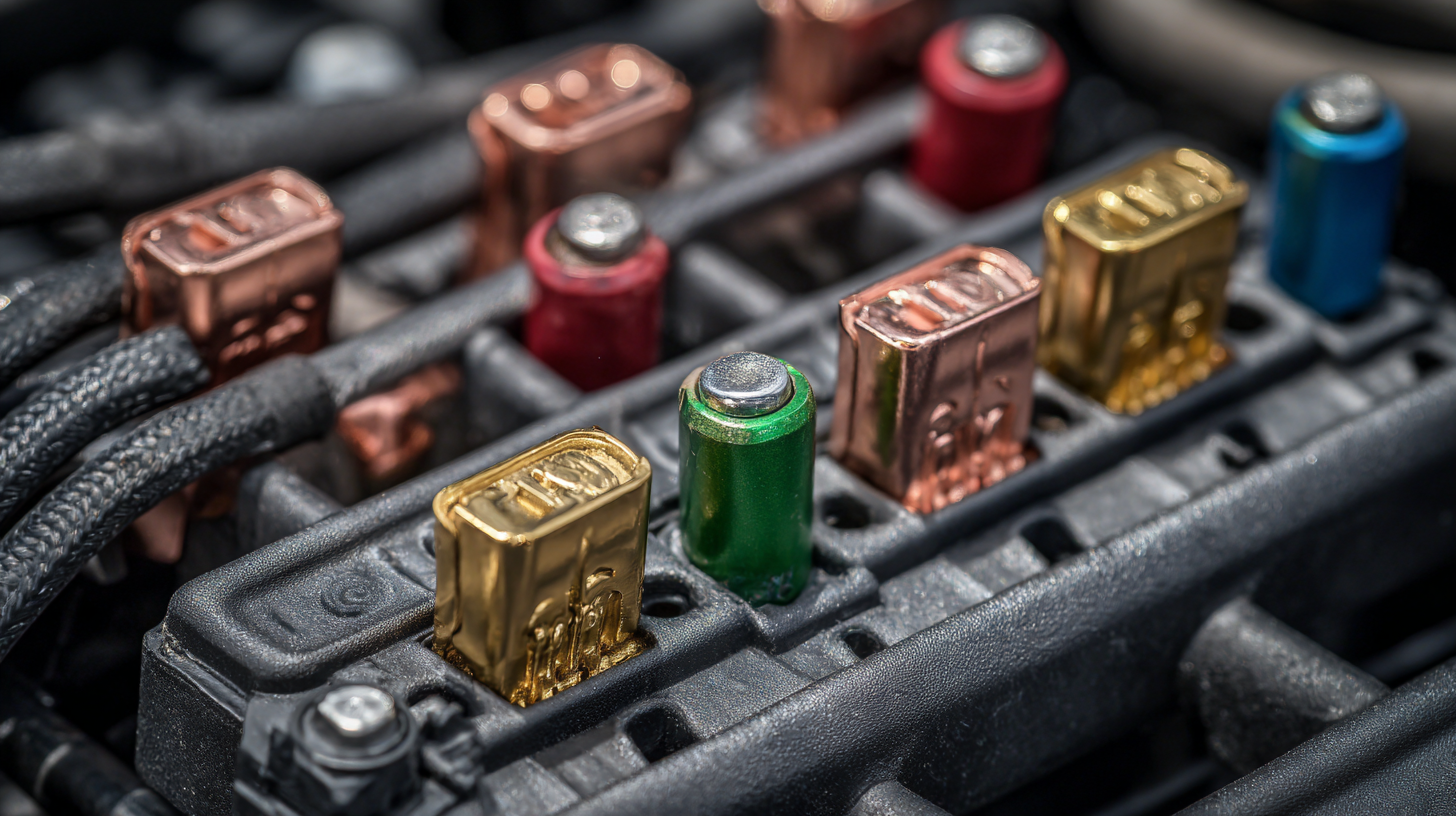
Taking care of those battery cable connectors is just as important to keep them working smoothly for a long time. Regularly give them a quick check — look for any signs of wear, rust, or frayed wires. If something looks off, don’t delay replacing the connectors to dodge bigger problems later on. It’s also a good idea to apply a bit of **protective spray** or grease meant for battery terminals. That stuff helps keep moisture and corrosion at bay, so your connectors last longer and your car starts up reliably every time you turn the key. Spending just a little time on proper installation and maintenance really makes a difference — you’ll notice better performance and fewer battery-related headaches in the long run.
Rev Up Your Ride: Exploring the BEN Z CAR Series for Ultimate Performance and Style
When it comes to performance and style, the BEN Z CAR Series stands out as a remarkable choice for automotive enthusiasts. With a commitment to quality and innovation, this series is designed to enhance your driving experience, providing not only aesthetic appeal but also unparalleled performance. The sleek design and advanced engineering of the BEN Z CAR models reflect a perfect blend of style and functionality, ensuring that every ride is an exhilarating adventure.
At the heart of the BEN Z CAR Series is a range of meticulously tested components, exemplified by our 5-way connector plug. This essential component is crafted with precision, supported by ISO 9001 and IATF16949 management system certifications, guaranteeing that you receive nothing but the best. Our professional technical team employs a wide array of testing instruments to uphold quality standards, ensuring that every product meets rigorous requirements. With fast delivery timelines and excellent after-sales service, transitioning your vehicle into a style and performance powerhouse has never been easier. Upgrade your ride with the BEN Z CAR Series and feel the difference in every drive.
FAQS
: Quality car battery cable connectors ensure a reliable electrical connection between your battery and the car's electrical system, preventing issues like intermittent power loss that can affect vehicle performance.
A thicker wire (lower gauge number) can handle more current and is often necessary for high-performance vehicles, so consider the gauge to ensure adequate power delivery.
Connectors made from durable materials like copper or lead are recommended because they resist corrosion and provide better conductivity.
Look for connectors that provide a secure, snug fit to prevent accidental disconnections during operation, which is crucial for maintaining a reliable connection.
Proper insulation helps prevent short circuits and enhances safety, making it a critical feature to look for in high-quality connectors.
Assess the compatibility of the connectors with your existing battery and cables to ensure seamless integration and effective electrical connections.
Choose connectors that are corrosion-resistant and have been treated or coated to prevent rust and oxidation, ensuring they last longer and perform reliably.
Built-in strain relief helps prevent cable wear and tear over time, making connectors with this feature a wise investment for increased durability and safety.
Yes, aluminum connectors can be a lighter and more cost-effective option, but make sure they meet your specific conductivity and corrosion resistance needs.
Prioritize materials, compatibility with battery terminals, high-quality insulation, and features like strain relief to ensure a secure and efficient electrical connection.
Conclusion
When you're taking care of your vehicle's performance, picking the right car battery cable connectors really does make a difference. Good quality connectors aren’t just about making things look nice—they actually help ensure your battery gets steady, reliable power and stop problems like corrosion or loose connections from cropping up. In our blog, we talk through some handy tips for choosing the right ones—stuff like understanding the different types out there, what features matter most, and how to size them properly for your specific ride. We also share common mistakes to watch out for, plus some advice on installing and maintaining them so they last longer.
At Yueqing Xulian Electronics Co., Ltd., we get how important it is to use top-notch automotive parts. We’ve built a reputation for making reliable connectors, including those for battery cables, that meet strict standards. By keeping these tips in mind, you’ll be able to make smarter choices when it comes to selecting your car battery cable connectors—helping your vehicle run smoother and last longer in the long run.
Related Posts
-
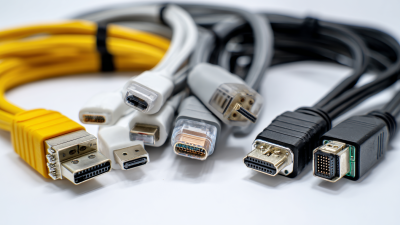
Ultimate Guide to Choosing the Right Connector Cable for Your Industrial Needs
-

Superior Tyco Amp Solutions from China Elevating Global Standards
-

10 Essential Tips for Choosing the Best Wire Cable Connectors
-
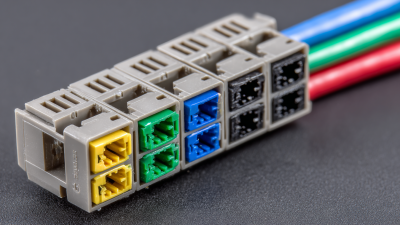
Ultimate Guide to Choosing the Right Terminal Block Connector for Your Needs
-

Navigating 2025: Key Tech Trends and Effective Tactics for Optimizing Best Deutsch Connectors
-

Exploring Future Trends in 2025 How to Choose the Best Connector for Your Needs
Blog Tags:


